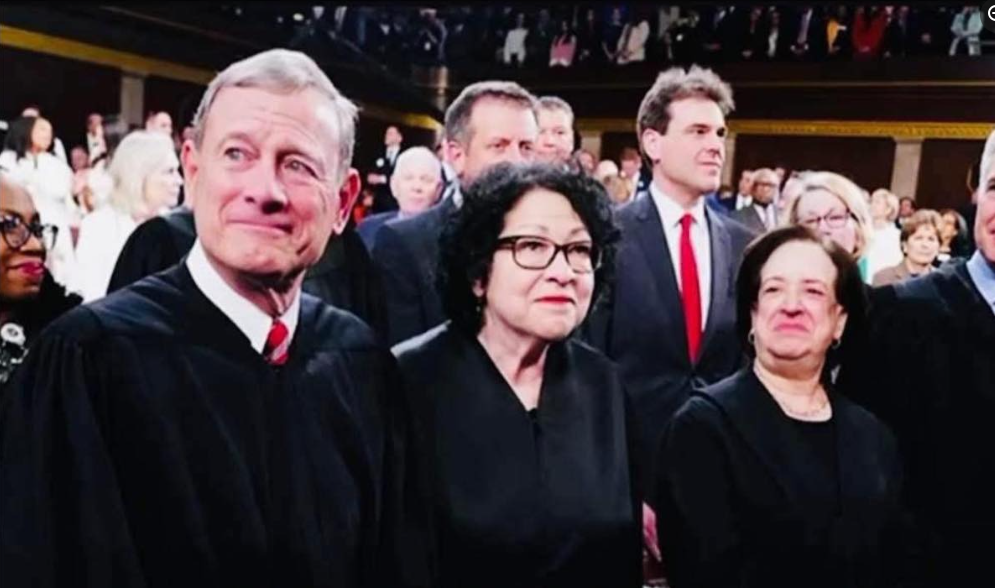The U.S. Supreme Court has declined to hear the appeal of a Massachusetts student who was prohibited from wearing a T-shirt to school that read, “There are only two genders.” This decision leaves the rulings of lower federal courts in place, which sided with the school district, holding that the restriction did not violate the student’s First Amendment rights.
The decision was not unanimous. Justices Clarence Thomas and Samuel Alito dissented, arguing that the lower courts misapplied long-established First Amendment standards. Alito, joined by Thomas, emphasized that if a school is allowed to teach students about social issues like LGBTQ+ rights or gender identity, it must also allow opposing viewpoints—even if they are controversial or uncomfortable. In Alito’s words, “If a school sees fit to instruct students of a certain age on a social issue like LGBTQ+ rights or gender identity, then the school must tolerate dissenting student speech on those issues.”
The case involves L.M., a middle-school student in Middleborough, Massachusetts. Because the student is a minor, their full identity is being kept private. Guardians Christopher and Susan Morrison filed a lawsuit in 2023 after school administrators told L.M. that they could not wear the shirt. When L.M. tried a second shirt reading, “There are censored genders,” it was also banned. The Morrisons argued that the school violated the precedent set in the 1969 Supreme Court case Tinker v. Des Moines, which protected students wearing black armbands to protest the Vietnam War and famously stated that students do not “shed their constitutional rights at the schoolhouse gate.”
The Morrisons’ lawsuit claimed the school was opening the door to selective censorship and viewpoint discrimination. They argued that banning speech because it might cause “negative psychological impact” or because administrators found it “demeaning” essentially rewrites the First Amendment. The complaint stated the policy “gives schools a blank check to suppress unpopular political or religious views” and warned that the lower courts’ reasoning inverted the Tinker standard.
The student is represented by the Alliance Defending Freedom (ADF), a conservative Christian legal group known for high-profile cases on religious liberty, gender, sexuality, and speech rights. ADF argued that the student’s message was political speech, which receives the highest level of constitutional protection, and that the school banned the shirt not due to disruption, but because it disagreed with the message.
The school district argued otherwise. Its attorneys said ADF “attempted to rewrite the facts,” ignoring sworn statements from staff at Nichols Middle School. These statements described the broader context: a young student body, ongoing mental-health challenges among transgender and gender-nonconforming students, and a history of bullying involving vulnerable children. According to the district, the shirt was not just political speech—it directly affected the safety and mental well-being of other students, some of whom had suicidal thoughts.
Administrators said the shirts caused distraction and heightened tensions. Some transgender students reported feeling targeted, anxious, or unsafe. The district emphasized that middle-school students are still developing emotionally and socially, and the school must protect every child’s well-being. Allowing the shirts, they argued, would have undermined that responsibility.
While the Supreme Court declined this case, it will consider a larger issue this term: whether bans on gender-affirming care for minors violate federal protections against sex discrimination. This case involves Tennessee, but a ruling could affect laws nationwide, as about half of Republican-controlled states have enacted similar bans. A decision is expected by early summer.
The Court is also addressing a separate matter involving government transparency and an agency created by former President Donald Trump. Last week, the Supreme Court temporarily blocked immediate freedom-of-information requests against the Department of Government Efficiency (DOGE), created by Executive Order 14158 on Trump’s first day in office, aiming to reduce government waste and modernize federal technology.
Lower courts had ordered DOGE to release certain records related to a lawsuit. Chief Justice John Roberts issued an administrative stay, pausing the order while the Supreme Court reviews the case, without further explanation. This stay does not resolve the issue—it merely freezes action.
Together, these cases—the T-shirt dispute, the transgender-care case, and DOGE transparency—show how the Supreme Court continues to shape cultural, political, and institutional conflicts across the country. Even when the Court declines to take a case, its silence can have major consequences.
In the Massachusetts T-shirt case, the Court’s refusal leaves the lower-court decision in place: schools can limit student speech if they believe it threatens the safety or emotional well-being of vulnerable classmates, especially in younger grades. Whether this standard will hold in future cases remains uncertain. For now, the message is clear: the First Amendment applies in schools, but schools have broad authority to determine when student expression crosses from opinion into disruption.
